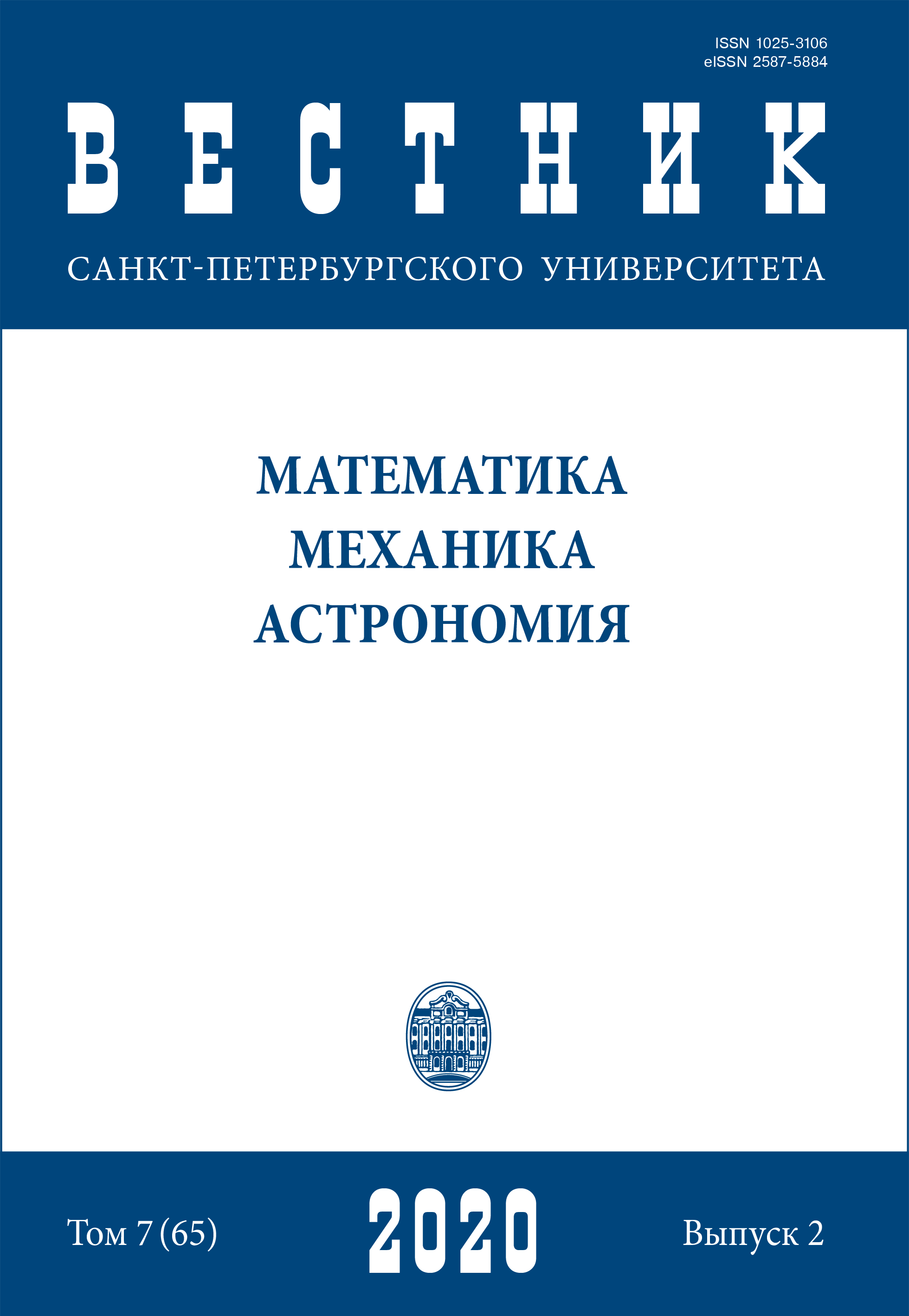On the problem of Aizerman: Coefficient conditions for an existence of three-period and six-period cycles in a second-order discrete-time system
DOI:
https://doi.org/10.21638/11701/spbu01.2020.213Abstract
In this paper, an automatic control discrete-time system of the second order is studied. Nonlinearity of this system satisfies the generalized Routh — Hurwitz condition. Systems of this type are widely used in solving modern applied problems of the theory of automatic control. This work is a continuation of the research presented in the author’s paper “On the problem of Aizerman: Coefficient conditions for an existence of four-period cycle in a second-order discrete-time system”, where systems with two-periodic nonlinearity lying in the Hurwitz angle are studied. In the referenced paper, the conditions on the parameters under which a system with two-periodic nonlinearity can have a family of non-isolated four-period cycles are indicated and a method for constructing such nonlinearity is proposed. In this paper, it
is assumed that the nonlinearity is three-periodic and lies in the Hurwitz angle. The system is studied for all possible values of the parameters. We explicitly indicate the conditions on the parameters under which it is possible to construct such a three-periodic nonlinearity that the system with specified nonlinearity is not globally asymptotically stable. It is shown that a family of three-period cycles and a family of six-period cycles can exist in the system with indicated nonlinearity. A method for constructing such nonlinearities is
proposed. The cycles are not isolated, any solution of the system with the initial data lying on some specified ray is periodic.
Keywords:
second-order discrete-time system, Aizerman conjecture, absolute stability, periodic solution
Downloads
References
Downloads
Published
How to Cite
Issue
Section
License
Articles of "Vestnik of Saint Petersburg University. Mathematics. Mechanics. Astronomy" are open access distributed under the terms of the License Agreement with Saint Petersburg State University, which permits to the authors unrestricted distribution and self-archiving free of charge.




